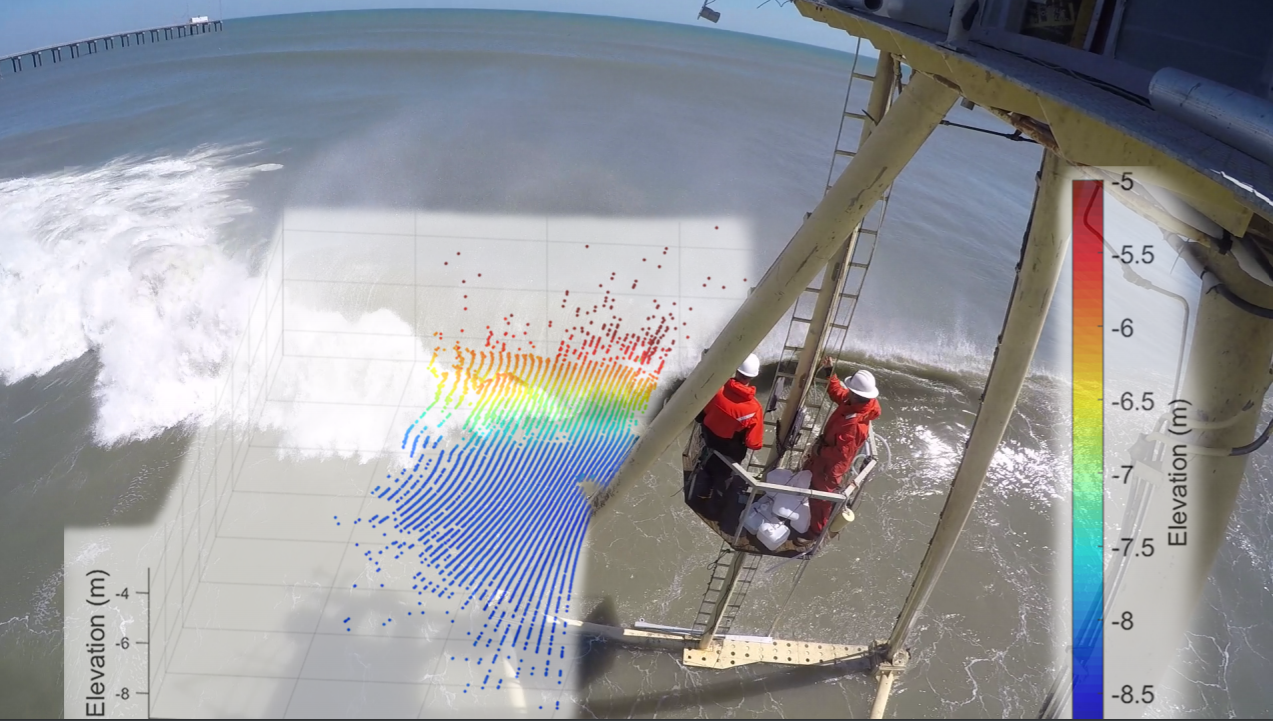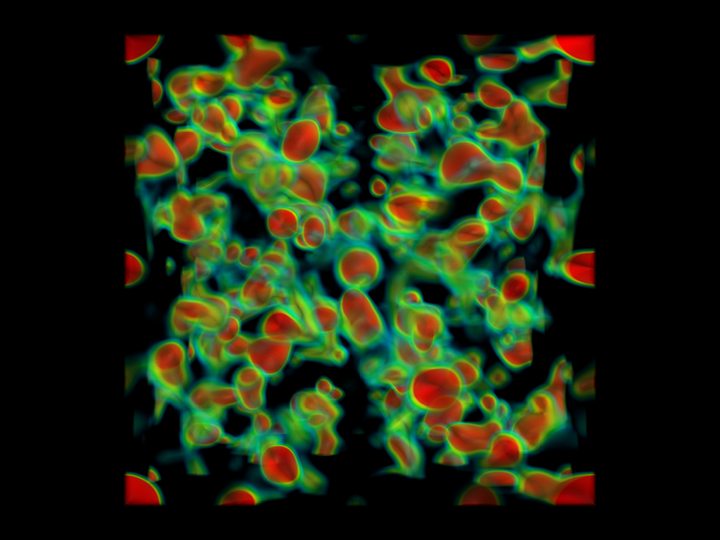

Visualization acts as a tool for big data – drilling mountains of information down and presenting complex data sets as easy-to-read images. The University of Houston’s Annual Data Visualization Day contest is sponsored by the Hewlett Packard Enterprise Data Science Institute and UH Libraries. It is an opportunity for students from different departments who are working on a variety of different research projects to present a visualization of their work.
Making data more efficient was important to Andrea Albright. She was awarded a Pathways internship with the United States Army Corps of Engineers in Duck, North Carolina. Her research involved the measurement of breaking waves.
Her winning visualization was an image meant to demonstrate the difference between older methods of recording waves (video) and new technology that allows for 3D imaging of waves (lidar). Lidar points collected from one scan are overlaid on the wave surface to compare what a camera (2D raster) sees versus a lidar sensor (3D point cloud).
Albright hopes the image helps people unfamiliar with lidar understand what the sensor sees. A lidar sensor shoots 32 individual lasers and can collect a snapshot of a wave surface every 1/10 of a second.
Albright will graduate from the Cullen College of Engineering and plans to work as a remote sensing researcher.
The second-place winner, Karun Rao, will graduate from the Cullen College of Engineering with a degree in chemical and biomolecular engineering. Rao, who is supported by a NASA Space and Technology Research Fellowship, works to develop advanced battery materials.
Rao accomplishes this by applying quantum chemistry simulations and artificial intelligence to predict these batteries’ properties, using the HPE Data Science Institute’s supercomputers.
Rao says: “How you choose to present data is critical because it helps simplify and communicate abstract concepts and relationships; humans can't easily see patterns in a giant list of numbers.”
In the future, Rao hopes to continue pursuing academic research in the fields of computational modeling and statistical analysis for advanced energy materials design.
The winners received Amazon Gift cards.
Five other competitors presented their data visualizations at this event, which promoted interdisciplinary conversations about how to use data science collaboratively.